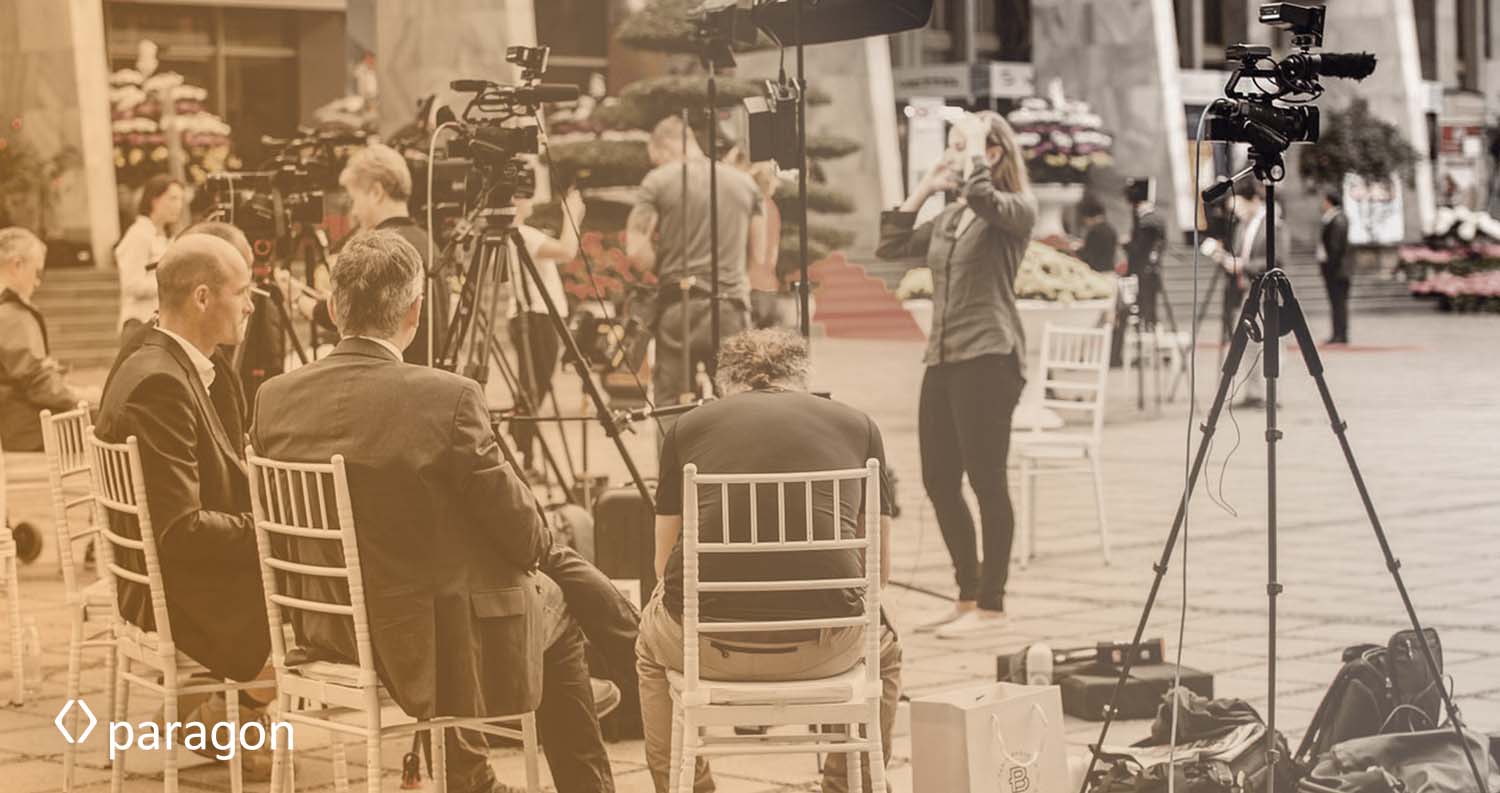Signing Off – The Great Resignation and Journalism
$16,000. That was my first salary as a reporter coming out of college. It was my dream job, and I was genuinely excited, but whew, it was still only $16,000. I had studied for four years to be a journalist, but nothing prepared me for that first job and that first salary. In hindsight, nothing could’ve prepared me for how challenging the world of journalism actually was.
Spoiler Alert: If you’re reading this from the Paragon PR website, I obviously don’t work in journalism anymore.
Every stop in my journalism career came with a minor raise – and major new responsibilities.
At my second job I was asked to be what’s called in “THE BIZ”, a “multimedia journalist” (MMJ). This is News Director speak for “we want one person to do the job of three people so that we don’t have to pay those extra two workers.”
I still believed in what I was doing, so I took on the challenge. As an MMJ, it was my job to contact sources, shoot my own interviews, write my own reports, edit my own stories and so much more. I was my own writer, photographer, reporter, editor, makeup artist, therapist and so much more. I got so used to people asking “Where’s your cameraman?” that I could anticipate the question before it even came out of their mouths. “You’re looking at ‘em!”
The job was lonely. I worked holidays thousands of miles away from my family. Most years I spent those holidays alone. If I was lucky, a family in the market I worked at would take me in and save some leftover Thanksgiving turkey for me when my shows were over.
The job was dangerous. I would drive like a maniac to extreme news events: car accidents, shootings, fires, flooding, all by myself, all in the name of journalism. It was so dangerous and almost completely thankless, but I did it because it was my job.
My third job in journalism, I was still an MMJ. This time, the station decided to cut costs by eliminating news vehicles. I was now asked to turn two stories every single day, while driving around in my own car.
Gas, expensive as ever, was not covered. Another corner cut by managers looking to save every single dime. I spent hours on end every day alone, editing stories in my car. I used to make sure I was close to a gas station, or shopping center, in case I needed to use the restroom.
I suffered two blood clots that hospitalized me while I was at that job and that station. I’m convinced it was the long time spent in the car that led to those blood clots. I remember my mother coming to me in the hospital, tears in her eyes, begging for me to pursue a new career path, because my current career was killing me.
I didn’t work for that station much longer. The scene in the movie “Friday” when Craig got fired on his day off had nothing on me. I got fired while I was in the hospital. The entire station shut down because it was no longer generating revenue. 150 people were laid off with me.
It was time to take my mother’s advice. That’s when I got into PR and never looked back.
My story is no different from countless others. Young, excited journalists looking to make a difference but instead beaten down by the systems of a capitalist industry looking to get the most bang for their buck.
MMJs have been the subject of attacks in the field. The result of being out alone, in often dangerous places by nature, hence why you’re there in the first place, with thousands of dollars worth of equipment and no one to watch your back.
MMJs have been hit by cars while reporting on “Breaking News” assignments as trivial as a water main break.
The national median salary for reporters, according to the U.S. Bureau of Labor Statistics reported in May 2021 was $48,370. Is that amount worth the danger and stress?
For many it is not. The great resignation has made its way to your televisions and more journalists are leaving the field for roles in corporate communications, marketing or public relations.
Employees are able to tap into the same storytelling skills while making more money and getting to see their loved ones on holidays.
The bottom line is reporters are underpaid and overworked. Until news stations start treating their workforce like people instead of just numbers, this trend will continue, and the people at home are the ones that suffer.
The Washington Post recently reported that two newspapers close every week. For every city or small town that loses a newspaper, the people in that area lose a source of information and an advocate for their neighborhoods.
These news deserts are becoming so common you can search your municipality and see if you live inside of one.
Freedom of the press and journalism are pillars of American society written into the Constitution by the Founding Fathers. It’s the journalists’ job to be the ‘watchdog’, maintaining the checks and balances of people in power so they don’t run off with our rights.
Of course, there are wonderful reporters still working everyday to continue to fight to be a voice for the voiceless. I commend those incredible journalists for being stronger than me and continuing to push their passion out despite all the challenges I’ve mentioned. Keep it up!
Almost every reporter has a similar anecdote about their very first salary, or working a second and third job just to make it in their first or second markets. It used to be a right of passage for seasoned industry veterans as a way of pointing out that, “If I survived it, you can too.”
That line of thinking needs to change. Pay reporters more and give them more support so that journalism can survive too.
For media and PR support, feel free to contact us.



